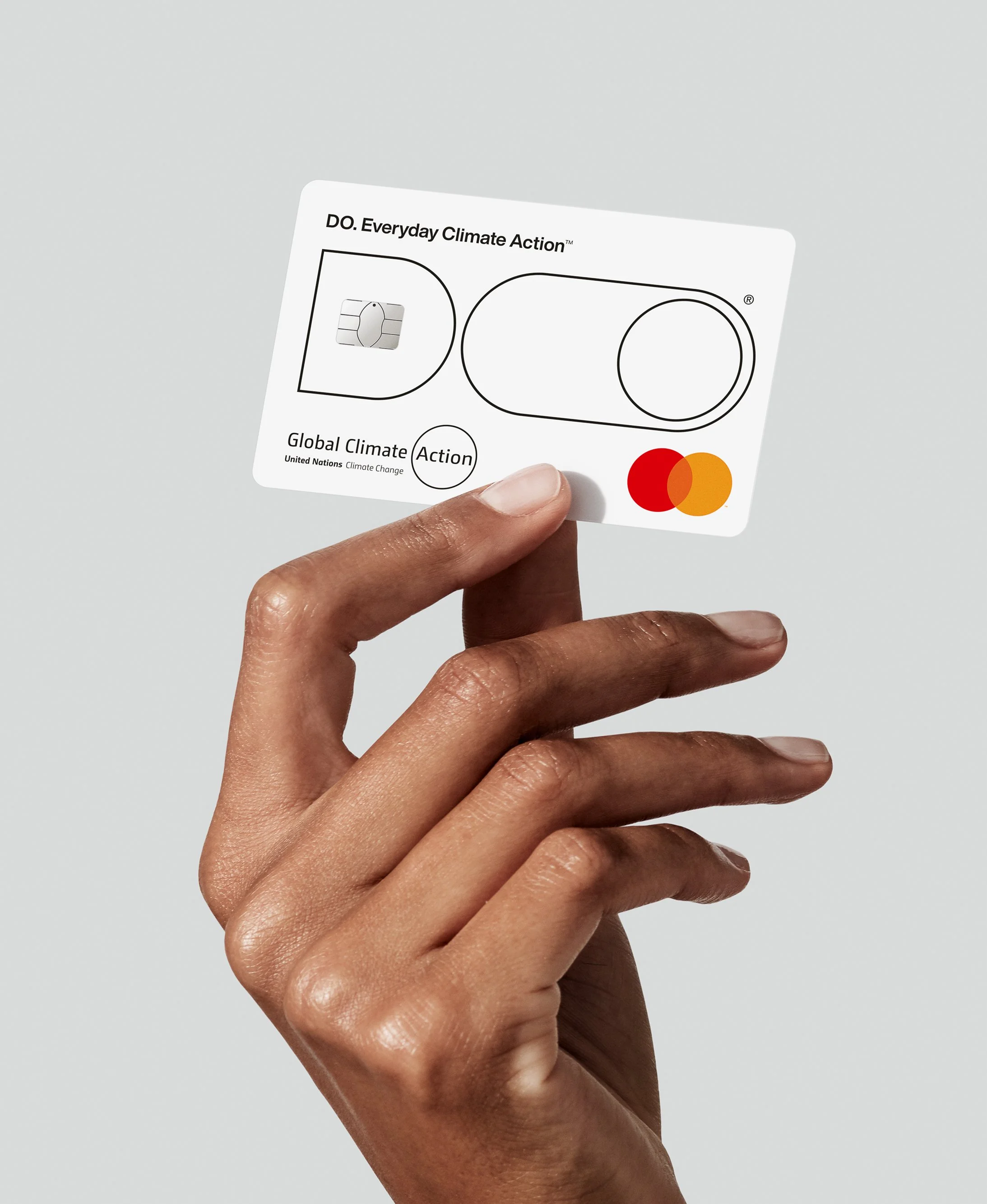Example: Doconomy
Overview
Credit Card that tells your climate impact instead of your financial impact
Sector: Credit Card
Link: https://www.doconomy.com
Notable Endings
Flip the credit card model to climate concern
Reveals the overlooked issue of easy measurement at the end in consumption
Positioned as a contrast in one of the worst parts of overconsumption
It starts the reflection at the beginning
In August 2020 I spoke with the founders of Doconomy, Mathias Wikstrom and Johan Pihl, to ask them more about the Doconomy product (doconomy.com).
They first met at Cannes Lions after both winning awards: Mathias for the Baltic Sea Project and Johan for the the Humanium Metal Initiative. So, they come with heaps of experience with social change and environmental issues, but also with a strong understanding
of the consumer and marketing. This gives them a unique mix of skills in developing innovative new products for a sustainable future. The Doconomy credit card product is their latest.
Joe: I wanted to start by asking a bit about the background of the product and how did it get started?
Johan: Going back to the very beginning, it was related to a project we created with Ålandsbanken. That ended up being the Ålands Index. Which was the first time carbon impact was measured per transaction.
Joe: Was that the first time globally any company had done it?
Johan: Yes. And that was back in 2014. Now Ålandsbanken is one of the founding partners of Doconomy. So, there is a strong connection there. We basically looked for a new way to explore the potential of how the consumer understands their carbon footprint. That is the starting point.
Joe: Why did you pick the credit card? I have always considered it as the worst example of guilt free, reckless consumption.
Mathias: If we were to select a specific point in time to illustrate consumption then it is the transaction. Because the transaction moment is an action in trust. It is an exchange. We are trying to inject responsibility at the very core of that moment. That is why the credit card as a vehicle for increased responsibility and transparency is so important. The credit card could be the guilty tool of mass destruction as it can aid mass consumption. In many ways, what we are doing with Doconomy, is highjacking current systems and functions and rewiring them to become more sustainable.
Joe: It strikes me as a very reflective tool. Which isn’t what credit cards are about.
Johan: If you would get a load of people to re-design the credit card. Most would approach faster, cheaper, etc. And this is what you see with many of the new fin-tech banks starting up. They want to speed up consumption. We have decided to go in the other direction, that the consumer should be more reflective. Take more time to consider the monthly bill, what is the real impact.
Joe: Your business seems to understand that it must be part of the consumer experience.
Johan: Yes. A sustainable lifestyle.
We are not interested in politics. We are creating a tool, with a built-in responsibility to indicate your consumption to the planet. It is deliberately staying away from any judgement or guilt.
Mathias: At the end of the day this is an educational effort. We aim to help consumers understand. Our perspective is a friendly one.
We know the world is in a place where we don’t want to be. How the hell can we get out of it? Transparency is one of the greatest tools.
Joe: I find it so hard to off-set carbon with current systems and apps. The amount of detail I need to add, it seems like doing a science project.
Johan: I love this problem. Our ability to develop a new, consumer-centric way of doing off-setting is obviously part of our plan at Doconomy. It is so important to get right. If you look at all the banking products that are long term. For example, pensions and investments. You have to ask, why isn’t off-setting part of that? That is why it is one of the critical areas that we are looking into. We really need to get off-setting right.
Joe: When I do presentations about endings at businesses, I am often surprised by the lack of acknowledgement of a product ending. Which I see as a blindness to the consequences of product creation.
Johan: Right now, we are still in an era of redundantness. We will soon see an era of companies that are sustainable by nature. We have not seen completely how they will create their products yet. We still see people and businesses that are tangled up in emotion.
Mathias: It is like pretending the problem doesn’t go away. But I think as long as the job is getting done. It is hard to tell who is green-washing. Everyone has a different starting point. For example, I would find it hard working with oil companies. But actually, that is maybe the best place to start.

